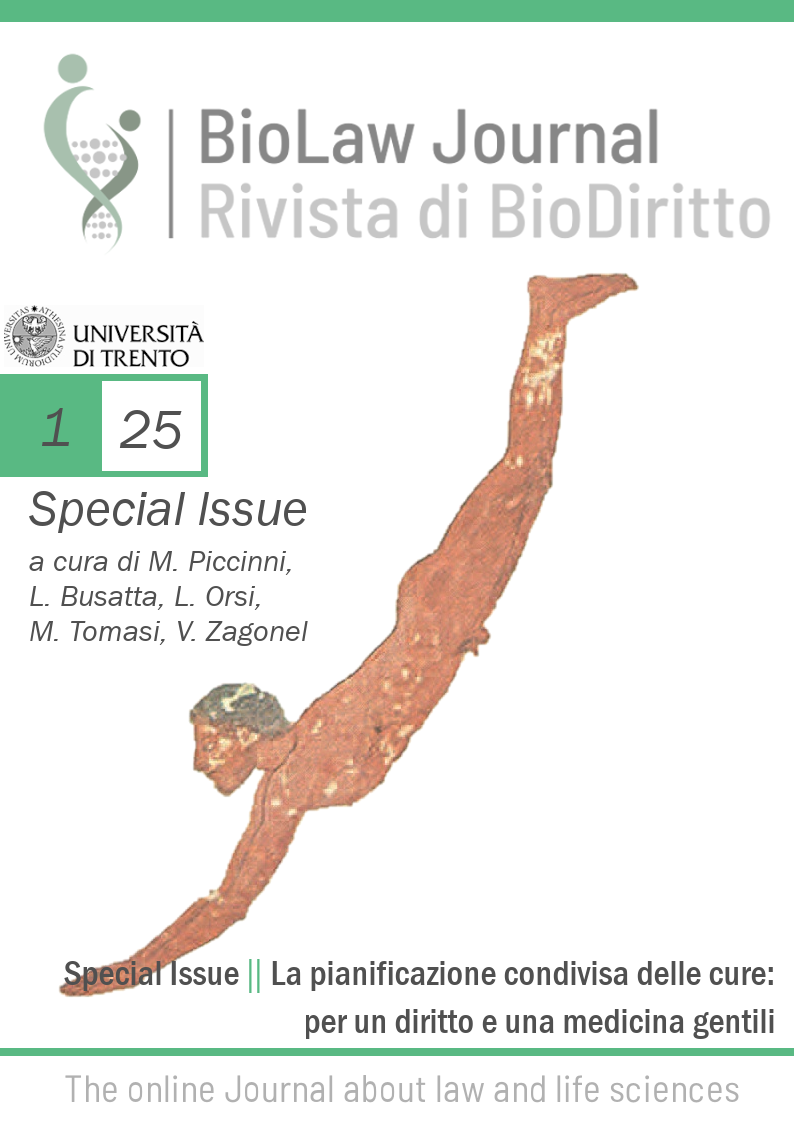Shared care planning as an alternative to the advance directives for end-of-life decisions
DOI:
https://doi.org/10.15168/2284-4503-3413Keywords:
Advance directive, shared care planning, end-of-life, illness, personal autonomyAbstract
This essay compares Shared Care Planning (SCP) and Advance Directives (AD) to assess their strengths and weaknesses in end-of-life decision-making. Law No. 219/2017, which introduced these legal instruments, extends beyond the scope of end-of-life care by emphasizing consent, pain management, and the decision-making capacity of minors and people with disabilities at all stages of the therapeutic relationship. According to the authors, SCP and AD should not be seen as opposing but complementary tools: both offer individuals the opportunity to reflect on health, illness, and mortality, highlighting the importance of human relationships and vulnerability. Recognizing this intersubjective dimension fosters a more comprehensive understanding of medical decision-making and personal autonomy.
Downloads
Published
How to Cite
Issue
Section
License

This work is licensed under a Creative Commons Attribution-NonCommercial-NoDerivatives 4.0 International License.





